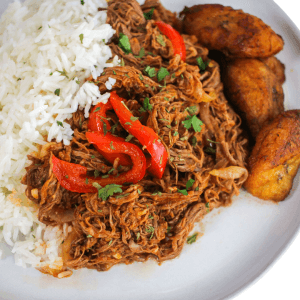Seasoning food is an essential skill for any aspiring chef or home cook, yet it can be daunting for beginners. The right balance of seasonings can elevate a dish from bland to extraordinary, turning a simple meal into a culinary masterpiece. In this comprehensive guide, we’ll explore the fundamentals of seasoning for beginners, including three essential rules for seasoning, general guidelines to follow, and the best seasonings to start with.
The Three Rules for Seasoning
When in doubt, follow these simple rules: Taste as you go. Season lightly, then taste your dish. Adjust as needed. Trust your palate—it’s your best seasoning guide. Don’t be afraid to explore and adapt based on personal preferences.
1. Taste as You Go
One of the cardinal rules of seasoning is to taste your food as you cook. Season lightly at first, then gradually add more seasoning until you achieve the desired flavor profile. This allows you to adjust the seasoning to your personal preference and avoid over-seasoning, which can ruin the dish.
Avoid over-salting or drowning your dish in spices. Start with a pinch, taste, and adjust gradually. Remember the golden rule: You can always add more, but you can’t take it away.
2. Layer Flavors
To create depth and complexity in your dishes, it’s important to layer your seasonings. Start with foundational flavors like salt and pepper, then build upon them with complementary herbs and spices. This technique adds dimension to your dishes and enhances the overall taste.
Think of seasoning as a building block. Salt enhances flavors, herbs add freshness, and spices bring warmth. Experiment with combinations: garlic and thyme, cumin and coriander, or paprika and oregano.
Add delicate herbs (like basil or cilantro) towards the end of cooking to preserve their vibrancy. Bold spices (such as cinnamon or cloves) can withstand longer cooking times.
3. Balance Sweet, salty, sour, and bitter
Achieving a balanced dish is key to successful seasoning. Pay attention to the four primary tastebud sensations: sweet, salty, sour, and bitter. Aim to incorporate a harmonious blend of these flavors into your dishes, adjusting the seasoning as needed to achieve the perfect balance.
There are other mouthfeels, including piquancy, often mislabeled as “heat,” that you can incorporate into your dishes, and they also need to be well balanced.
The General Rule When Seasoning Food
A general rule when seasoning food is to start with a light hand and gradually add more seasoning as you go. Remember that it’s easier to add more seasoning than to fix an over-seasoned dish.
Additionally, consider the natural flavors of the ingredients you’re using and how they interact with different seasonings. For example, delicate ingredients like fish may require lighter seasoning, while heartier meats can withstand bolder flavors.

The Best Seasonings for Beginners
Salt and pepper
The dynamic duo! Salt enhances flavors, while pepper adds a subtle kick.
Salt and pepper are the foundation of seasoning and are essential in almost every dish. Use kosher salt or sea salt for seasoning meats and vegetables, and freshly ground black pepper for added depth of flavor. Experiment with different types of salt and pepper to discover your preferred tastes.
Garlic Powder
Garlic powder is a versatile seasoning that adds savory depth to a wide range of dishes. It’s particularly useful for seasoning meats, vegetables, soups, and sauces. Start with a small amount and adjust to taste, as garlic powder can quickly become overpowering if used excessively.
Onion Powder
This pantry staple elevates any dish. Use it in marinades, soups, and roasted vegetables.
Herbs: Basil, Thyme, and Rosemary
Use Fresh or dried, these herbs infuse dishes with aromatic goodness. Basil for Italian cuisine, thyme for roasted meats, and rosemary for hearty stews.
Paprika
Adds color and mild heat. Choose sweet or smoked paprika based on your preference.
Italian Seasoning
Italian seasoning is a convenient blend of herbs such as oregano, basil, thyme, and rosemary, which are commonly used in Mediterranean cuisine. This versatile seasoning adds aromatic flavor to pasta dishes, pizzas, salads, and roasted vegetables, making it an ideal choice for beginners looking to enhance their cooking.
All Purpose Seasoning
All-purpose seasoning is a blend of spices and herbs, in some cases with salt and pepper, for a perfect balance to pair well with any dish. A blend like Savory Delight is the perfect companion for beginners and those wanting to get amazing flavor from food without having to work on perfectly mixing and balancing spices, herbs, and other flavors.
All pouprse seasoning is the “easy button” of cooking.

Conclusion
Seasoning isn’t just about sprinkling salt—it’s a balancing act that enhances your culinary creations. Remember the rules, trust your taste buds, and explore the world of flavors. Whether you’re seasoning a simple salad or a gourmet feast, let your passion for cooking shine through every pinch and dash.






